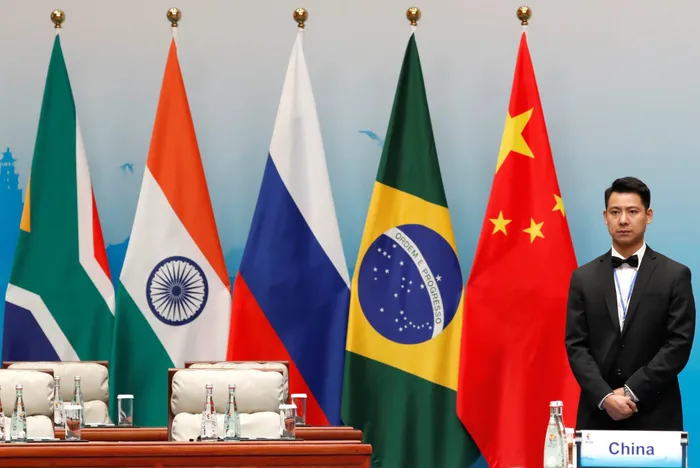BRICS media to strengthen direct communication to better serve interests of emerging economies

An attendant is stands next to South African, Indian, Russian, Brazilian and Chinese flags during a plenary session of BRICS Summit, in Xiamen, China. REUTERS/Tyrone Siu
Brasilia - BRICS media should continue to strengthen direct communication and cooperation to increase BRICS countries' influence worldwide and better serve the interests of its member countries, said Marcos de Oliveira, editor-in-chief of Brazilian daily Monitor Mercantil.
“The communication and collaboration between BRICS media have been a key contributor to enabling BRICS countries to establish influence and expand cooperation within BRICS as well as with neighbouring countries,“ de Oliveira told Xinhua in a recent interview.
BRICS, an acronym for Brazil, Russia, India, China and South Africa, represents a quarter of the global GDP, 18 percent of global trade and 25 percent of the world's foreign investment.
It has become a vital platform for strengthening cooperation among the five countries and a vital force for improving global governance.
For the member countries of BRICS, there is a great open field for greater exchange of information, he said.
Against the backdrop of the rapidly-changing global political and economic landscape, it is up to the media to bring accurate and adequate information to readers, which reflects the new reality that is being built worldwide with the end of the unipolar world, he added.
On Covid-19, de Oliveira said that a major fallout from the pandemic is poor populations becoming more vulnerable, calling on the media to shoulder the responsibility of showing these facts and creating space for discussions that lead to a resumption of development.
"Sustainable development is a global priority,“ he said. ”In the case of BRICS, the media fulfil their role by disclosing accurate and real information on the countries that make up BRICS without bias, showing what is done in each country and what can serve as an example for others.“
De Oliveira cited Monitor Mercantil and Xinhua News Agency as a successful example of BRICS media cooperation, noting “one of the fruits of this partnership is the Belt and Road Editorial on the Monitor Mercantil website.”
This type of collaboration allows readers access to accurate information directly from the source, instead of from Western media as is the common case in Brazil, said the editor-in-chief, hoping that “partnerships like this will develop among the BRICS media.”
Xinhua